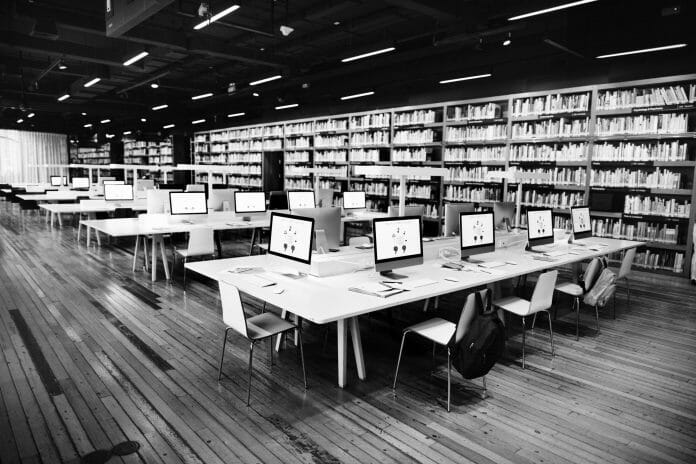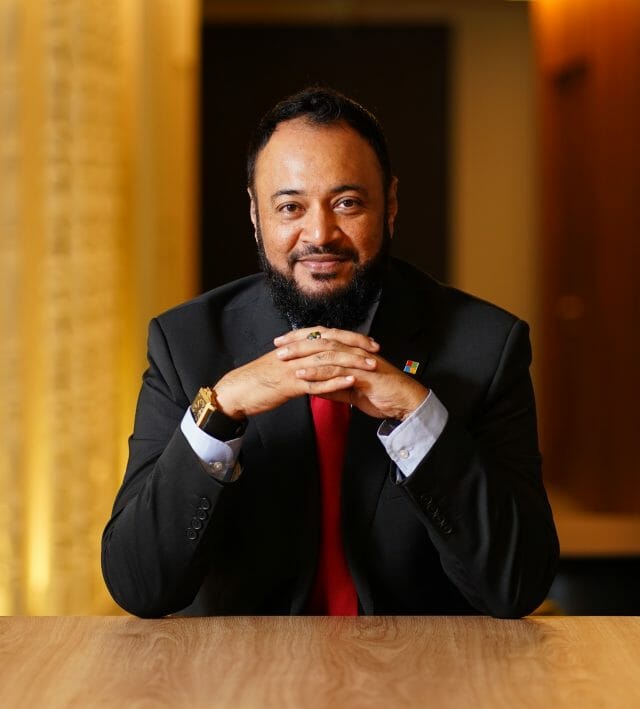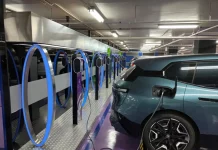
Business Today speaks to Sheikh Manzoor, Public Sector Lead, Microsoft Malaysia on Microsoft’s role in changing Malaysia’s education landscape as well as their latest partnership with the Ministry of Education.
Poovenraj Kanagaraj
How has technology changed the education landscape over the last few years in the country? And how has Microsoft played a significant role in the change?
This year, Malaysia participated for the first time in the Microsoft Global Learning Connection. The school that participated was Sekolah Kebangsaan Tiara Permai, who had integrated Skype into their classroom to create a virtual learning programme for one of their students named Isaac Jeremiah (aged 10). Isaac was hospitalised due to a condition in his lungs that prevented him from attending his classes, but through the use of Skype, Isaac and any future students who were unable to come to school, could still join classes from home and not miss out on an education. This is just one example of the great change that is taking place in the education landscape thanks to technology.
Lessons aren’t restricted anymore to classroom-based settings within “school hours” which extends and enriches teaching and learning experiences for both students and teachers.
Our goal is to democratise, integrate and complement technologies used in education. Our partnerships with the Ministry of Education to launch DELIMa and STEM4ALL, as well as our involvement in Bett Asia are some of the many examples that illustrate our commitment to this goal. We also regularly conduct training sessions for teachers as well as students, to encourage the adoption of technology and create a desire among youths especially, to pursue careers in technology.
What has been some of the prominent challenges in integrating technology into the education sector?
One of the main challenges is ensuring equal access for educators and students to technology. This is why the DELIMa launch is such an important moment, as it provides all teachers and students with access to all of the productivity tools and solutions offered not only by Microsoft, but by other industry players as well.
Another key challenge is accessibility. As technology gets more advanced, it is also becoming more affordable. The essentials such as internet connectivity and hardware must be accessible or affordable for the integration of technology to be effective. We are already working with local telcos such as Celcom, Maxis, Telekom Malaysia, and U Mobile to provide packages that combine our Modern Workplace solutions with internet data packages, saving costs and providing access to solutions and internet simultaneously.
What is Delima’s endgame and how would you propose Microsoft along with other parties achieve that?
When DELIMa was launched, MoE had highlighted a few goals which are perfectly in sync with our vision at Microsoft. The first goal is to create a democratised platform, to make digital learning accessible to all by supporting a multi-technology ecosystem. The second is to inspire a spirit of lifelong learning using technology to enable learning to take place anytime, anywhere. Finally, is to move the nation’s digital transformation needle, specifically within the education sector.
That said, teachers also play a vital role in ensuring that tech in education bears fruits. To this end, continuous training and upskilling among educators will be crucial. We at Microsoft also continuously engage with governing Ministries such as MoE and MoHE, to keep the conversation going on how technology can enhance education. In doing so, we hope to keep Malaysia on the right track towards success.
The Covid-19 crisis has definitely accelerated this push for technology to be utilised in classrooms, how can we sustain this practice? As technology progresses, will classrooms across Malaysia be able to keep up?
In a study by Microsoft which surveyed 500 teachers and institutional leaders from around the world within the Microsoft Education community, 61 percent expect to begin the next school year in a hybrid learning environment involving a mix of remote and in-person learning. The survey also found that 87 percent of educators expect to use technology more than before, when in-classroom teaching resumes. Globally, educators and leaders are recognising the immense benefits of integrating technology with classrooms.
As such, we want to further leverage our partnership with the government and educational institutions to further enable and sustain the digital transformation that is currently happening.
The first step is through increased industry collaboration. Like what we saw in DELIMa, where we have key industry players work together to provide technology for education, collaboration provides an avenue for customers to choose the solutions that work best for them. Democratised platforms form as a result, providing crucial flexibility that ensures classrooms across the nation can keep up with the changes taking place right now, and in the future.
Keep the focus on public-private partnerships as we head into the future. As education is still under the purview of the government, it is vital that private entities such as Microsoft, work closely with and support initiatives launched by the government, sharing technology that can impact a larger audience. When it comes to introducing new technologies, this approach helps boost the adoption rate at a larger scale, allowing for a smoother digital transformation journey overall.
A mindset shift also needs to take place, and this applies to everyone; be it teachers, students, parents and even decision–makers. We must adopt a mindset that views technology as a tool to enhance learning and access to education rather than a disruption. We must also get rid of this idea that technology is for the young and those who are “digitally-inclined”, and instead adopt an open mindset that embraces lifelong learning.
How will Microsoft continue to play a role in the future in regard to the nation’s education system?
If our future is digital, the need for our teachers and students to have access to the right tools and solutions is critical for the continuous growth of our nation. We do not intend to slow down this momentum – indeed its quite the opposite.
As the education sector reopens, we are now focused on enabling and sustaining the digital transformation that is already happening. In this regard, the launch of DELIMa is an important milestone as it demonstrates the importance of technology to the future of education.
As we head into the future, we hope to see greater integration of digital tools within classroom settings. We hope to support Malaysia in achieving its aspirations under the Education Blueprint of empowering every student with crucial digital skills and transforming the learning environment to allow for a more enjoyable and holistic education experience.









